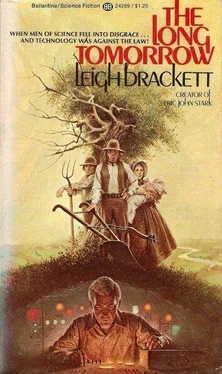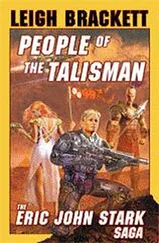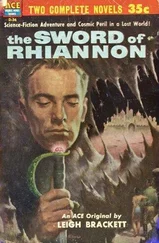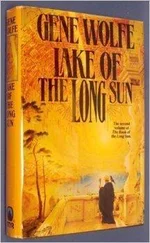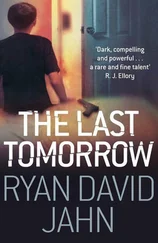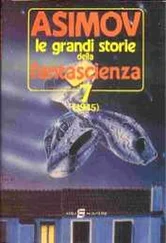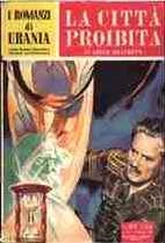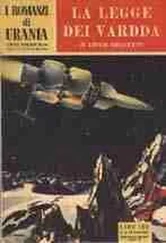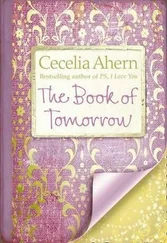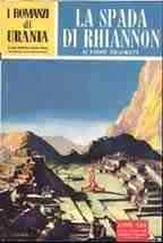A noise went up from the people now that turned Len hot all over and closed up his throat and made his eyeballs prick. Somebody threw wood on the bonfire. It roared up a torrent of sparks and a yellow glaring of flame, and there were people rolling on the ground now, men and women both, clawing up the dirt with their fingers and screaming. Their eyes were all white, and it was not funny. And over the crowd and the firelight went the voice of the preaching man, howling shrill and mighty like a great animal in the night.
“If there be evil among you, cast it forth!”
A lank boy with the beard just sprouting on his chin leaped up. He pointed. He cried out, “I accuse him!” and the froth ran wet in the corners of his mouth.
There was a sudden violent surge in one place. A man had sprung up and tried to run, and others caught him. Their shoulders heaved and their legs danced, and the people around them hunkered out of the way, pushing and tugging at them. They dragged the man back finally, and Len got a clear look at him. It was the ginger-haired trader William Soames. But his face was different now, pale and still and awful.
The preaching man yelled something about root and branch. He was crouched on the edge of the wagon now, his hands high in the air. They began to strip the trader. They tore the stout leather shirt off his back and they ripped the buckskin breeches from his legs, exposing him white and stark. He wore soft boots on his feet and one of these came off, and the other they forgot and left on him. Then they drew back away from him, so that he was all alone in the middle of an open space. Somebody threw a stone.
It hit Soames on the mouth. He reeled over a little and put up his arms, but another stone came, and another, and stick and clods of earth, and his white skin was all blotched and streaked. He turned this way and that, falling, stumbling, doubling up, trying to find a way out, trying to ward off the blows. His mouth was open and his teeth showed with the blood running over them and down into his beard, but Len couldn’t hear whether he cried out or not because of the noise the crowd was making, a gasping screeching greedy obscene gabble, and the stones kept hitting him. Then the whole mob began to move toward the river, driving him. He came close past the cart, past the shadow where Len was watching through the spokes, and Len saw clearly into his eyes. The men came after him, their boots striking heavy on the dusty ground, and the women came too, with their hair flying and the stones in their hands. Soames fell down the bank into the shallow river. The men and women went after him and covered him the way flies cover a piece of offal after a butchering, and their hands rose and fell.
Len turned his head and looked at Esau. He was crying, and his face was white. Esau had his arms folded tight across his middle, and his body was bent over them. His eyes were huge and staring. Suddenly he turned and rushed away on all fours under the cart. Len bolted after him, scrambling, crabwise, with the air dark and whirling around him. All he could think about was the pecans Soames had given him. He turned sick and stopped to vomit, with a terrible icy coldness on him. The crowd still screamed by the riverbank. When he straightened up, Esau was gone in the shadows.
In a panic he fled between the carts and the wagons. He kept saying, “Esau! Esau!” but there was no answer, or if there was he couldn’t hear it for the voice of murder in his ears. He shot out blindly into an open space, and there was a tall looming figure there that stretched out long arms and caught him.
“Len,” it said. “Len Colter.”
It was Mr. Hostetter. Len felt his knees give. It got very black and quiet, and he heard Esau’s voice, and then Mr. Hostetter’s, but far and tiny, like voices carried by the wind on a heavy day. Then he was in a wagon, huge and full of unfamiliar smells, and Mr. Hostetter was boosting Esau in after him. Esau looked like a ghost. Len said, “You said it would be fun.”
And Esau said, “I didn’t know they ever—” He hiccuped and sat down beside Len, his head on his knees.
“Stay put,” said Mr. Hostetter. “I have to get something.”
He went away. Len raised up and watched, his eyes drawn toward the fire glare and the wailing, sobbing, shrieking mob that wavered to and fro crying that they were saved. Glory glory, hallelujah, the wages of sin are death, hallelujah!
Mr. Hostetter ran across the open space to another trader’s wagon, parked beside a clump of trees. Len couldn’t see the name on the canvas, but he was sure it was Soames’s wagon. Esau watched too. The preaching man was going at it again, waving his arms high hi the air.
Mr. Hostetter jumped out of the other wagon and ran back. He was carrying a small chest, maybe a foot long, under one arm. He climbed up onto the seat, and Len scuttled forward inside the wagon. “Please,” he said. “Can I sit beside you?”
Hostetter handed him the box. “Stow this inside. All right, climb up. Where’s Esau?”
Len looked back. Esau was curled up on the floor, lying with his face down on a bundle of homespun. He called him, but Esau did not answer. “Passed out,” said Hostetter. He uncurled his whip with a crack and shouted to the horses. The six great bays leaned like one horse into the breastbands and the wagon rolled. It rolled faster and faster, and the firelight was left behind, and the voice of the crowd. There was the dark road and the dark tree beside it, the smell of dust, and the peaceful fields. The horses slowed to an easier gait. Mr. Hostetter put his arm around Len, and Len clung to him.
“Why did they do it?” he asked.
“Because they’re afraid.”
“Of what?”
“Of yesterday,” said Mr. Hostetter. “Of tomorrow.” Suddenly, with astounding fury, he cursed them. Len stared at him, open-mouthed. Hostetter shut his jaws tight in the middle of a word and shook his head. Len could feel him tremble all over. When he spoke again his voice was normal, or almost.
“Stick with your own people, Len. You won’t find any better.”
Len murmured, “Yes, sir.” Nobody spoke after that. The wagon rocked along and the motion made Len drowsy, not a good drowsiness of sleep, but the sickish kind that comes with exhaustion. Esau was very quiet in the back. Finally the team slowed to a walk, and Len saw that they were back in the fairgrounds.
“Where’s your wagon?” asked Hostetter, and Len told him. When they came in sight of it, the fire was built up again and Pa and Uncle David were standing beside it. They looked grim and angry, and when the boys got down they did not say a word, except to thank Hostetter for bringing them back. Len looked at Pa. He wanted to get down on his knees and say, “Father, I have sinned.” But all he could do was to stand there and begin to sob and shake again.
“What happened?” asked Pa.
Hostetter told him, in four words. “There was a stoning.”
Pa looked at Esau and Uncle David, and then he looked at Len and sighed. “Only once in a long time do they really do such a thing, but this had to be the time. The boys were forbidden, but they would go, and so they had to see it.” He said to Len, “Hush, boy. Hush now, it’s all over.” He pushed him, not ungently, toward the wagon. “Go on, Lennie, you get into your blanket and go to sleep.”
Len crept under the wagon and rolled the blanket around him and lay there. A weak, dark feeling came over him, and the world began to slip away, carrying with it the memory of Soames’s dying face. Through the canvas he heard Mr. Hostetter saying, “I tried to warn the man this afternoon that the fanatics were whispering about him. I followed him there tonight, to get him to come away. But I was too late, there was nothing I could do.”
Читать дальше
